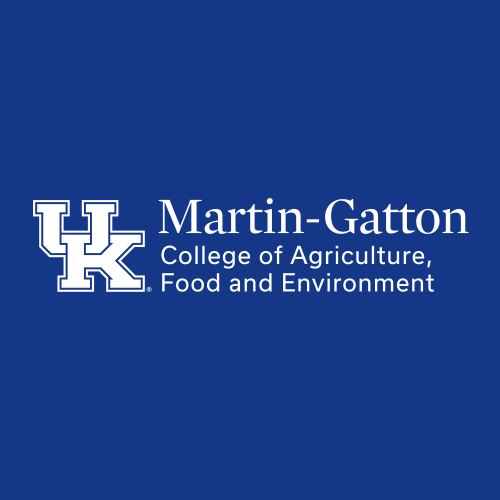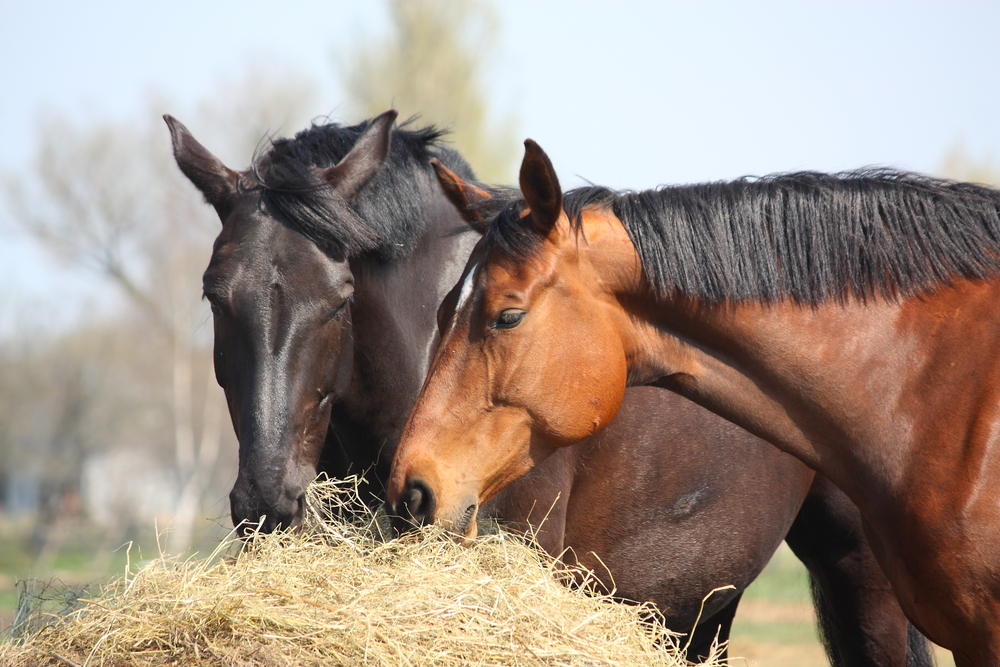Horses
Kentucky's Horse Industry
Horses have been and continue to be an important part of our economy and culture. According to the 2022 Kentucky Equine Survey, Kentucky is home to 209,500 horses and 31,000 horse farms/operations. More than 3 million acres in Kentucky are devoted to equine use, and the total value of our horses and horse-related assets (land, buildings, equipment, etc.) is estimated at $27.7 billion. In-state horse operations also spend more than $1 .6. billion annually (2023), with 82 percent of that remaining in the Bluegrass.
While Kentucky may not have more total horses than Texas, California, or Florida, Kentucky horse sales and income from horse-related operations bring nearly $1 billion to the commonwealth each year. This is due to the large number of Thoroughbred horses bred, born, raised, and sold in Kentucky for a career in racing. Most of those Thoroughbreds can be found in the central Bluegrass region near Lexington.
Other breeds of horses, such as the Quarter Horse, Tennessee Walking Horse, Saddlebred, and Mountain Horses, are also popular, but they are primarily used for recreational riding and showing. Large draft horse breeds are also still used in Kentucky for farm work, transportation, and pulling competitions.
In addition to generating a $2.1 billion annual economic impact in the commonwealth (2021), the horse industry is a huge job creator. In fact, there are more than 32,000 jobs related to the horse industry. Some jobs work directly with horses, such as trainers, veterinarians, groomers, jockeys, and horse van drivers. Other jobs indirectly serve horses, like feed mill employees, construction workers, marketers, and insurance agents.
Top horse breeds/equine:
Thoroughbreds - About the Breed | State Fact Book
American Quarter Horse - About the Breed
Tennessee Walking Horse - About the Breed
Other (unregistered or cross-breds)
American Saddlebred* - About the Breed
Donkeys, Mules & Burros - Donkeys are often used to guard calves, sheep, and goats from predators.
Mountain Horse Breeds* - About the Breed
* Breed developed in Kentucky
Organizations, Services & Programs
Kentucky Horse Council - Your connection to the Kentucky Equine Industry. A private nonprofit that offers the "Foal License Plate" develops programs for Trails, Health and Welfare, Horse Owners, Youth, and Legislation. They are an all-breed, all-discipline organization managed by a Board of Directors and operated out of an office at the Kentucky Horse Park.
Kentucky Equine Education Project - KEEP is the economic advocate for Kentucky’s $6.5 billion horse industry in Frankfort and Washington, DC. Since 2006, they have championed issues that benefit Kentucky horses, breeders, race tracks, and horsemen, in turn increasing the industry’s financial contribution to the Commonwealth’s economy, job creation, agricultural exports, and global investment.
Extension Equine Program - UK Ag Equine Programs serves as the front door to equine work being done at the University of Kentucky, representing the breadth and depth of all things equine in the College of Agriculture, Food and Environment. It exemplifies the college’s long-term commitment to serving the equine industry and horse enthusiasts regionally, nationally and internationally.
Is Kentucky Really the Horse Capital of the World?
Even though we have been using this phrase for many years, it seems there has been a long withstanding debate on who gets this title.
The Florida Thoroughbred Breeder’s and Owners Association was granted the trademarked title for Marion Co., Florida in 2002, but they were told it must be preceded by “Ocala/Marion County” in order to be used. Apparently, the trademark office also ruled in this case that an entity does not have exclusive rights to a phrase because of boastful claims, such as best or most.
Due to this no-exclusivity rule and the fact that Kentucky is, according to the USDA, the top-ranking state for horse sales and breeding fees, one could agree that Lexington and its surrounding counties are also free to use the phrase with no issue. Let’s look at the numbers.
Top horse counties in Kentucky:
Fayette
Bourbon
Woodford
Jefferson
Scott
Shelby
Sources: Kentucky Equine Survey, University of Kentucky, Kentucky Equine Education Project, Economic Research Service
Counties with 5,000 or more horses.
Take a look at what makes Lexington, Kentucky the Horse capital of the world.
NBC Sports
Caring for a horse
Keeping a horse healthy requires time, money, and responsibility. Horses need to eat between 1.5-3% of their body weight in food a day depending on their age and use. At least half of their diet should come from leafy forages such as pasture and hay. Horses also need access to clean water as they need to drink 5-10 gallons a day. Horses hooves, coats, and teeth require regular care as well.
Mares will carry their foals for 11 months. Most foals are born between January and April, and they are weaned from their mothers when they are about 6 months of age. Training begins when they are between 2 and 4 years old. The average lifespan of a horse is 25 to 30 years. A horse’s diet is made up of high quality grasses, hays, and grains such as oats, barley, and corn.
Extension Equine Program - where to go for help
Videos
Kentucky Horses: Something for Everyone
Kentucky Horse Council
In Kentucky, horses are a long-standing tradition. Kentucky horse farms have raise championship winners and The Bluegrass State is home to one of the sport's most legendary events. Kentucky Tourism
Tour the top equine hospital in the world. KFB Bluegrass and Backroads.

















